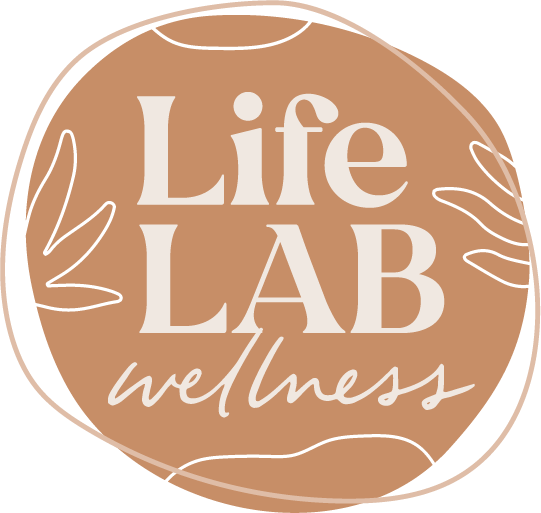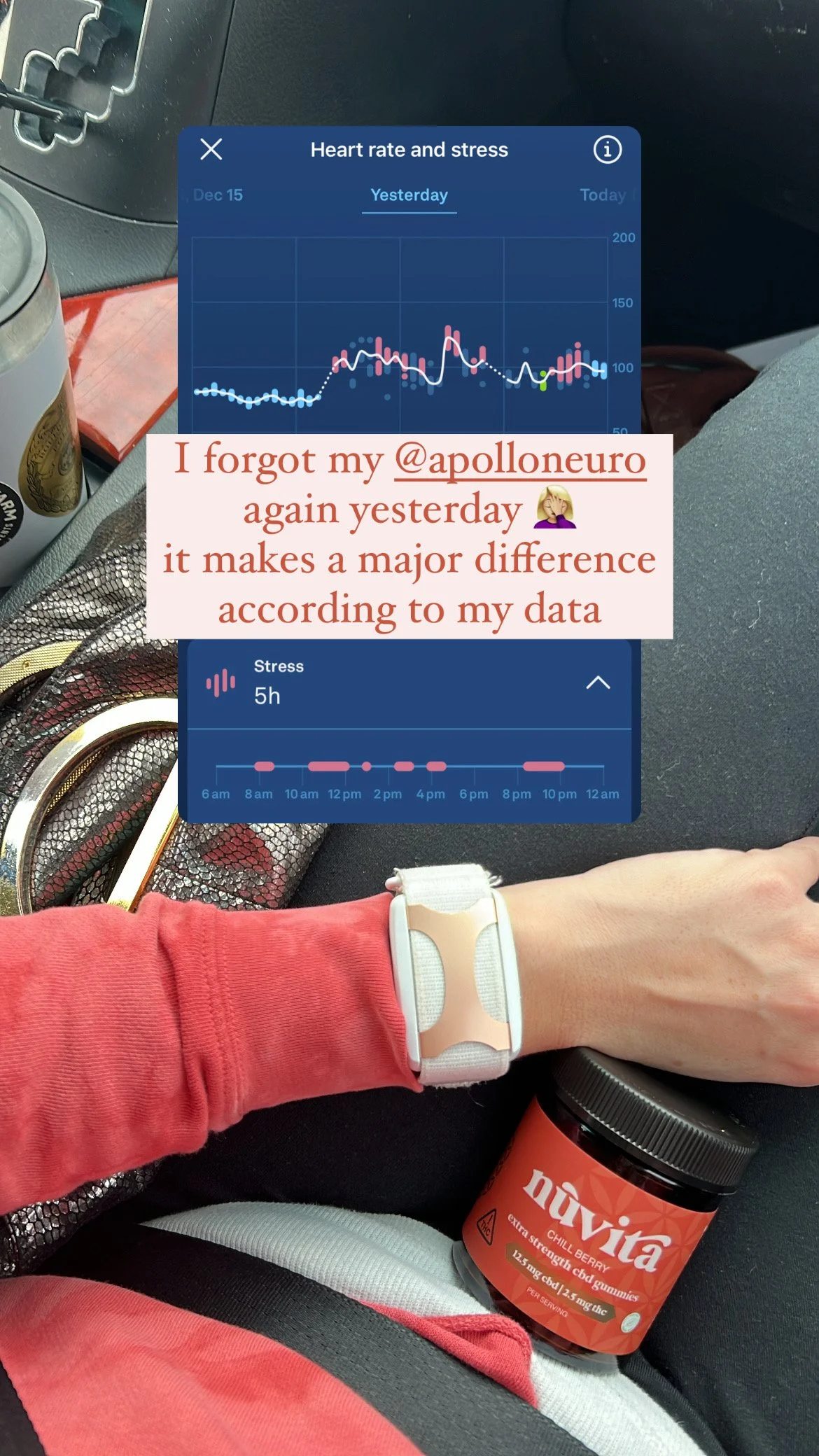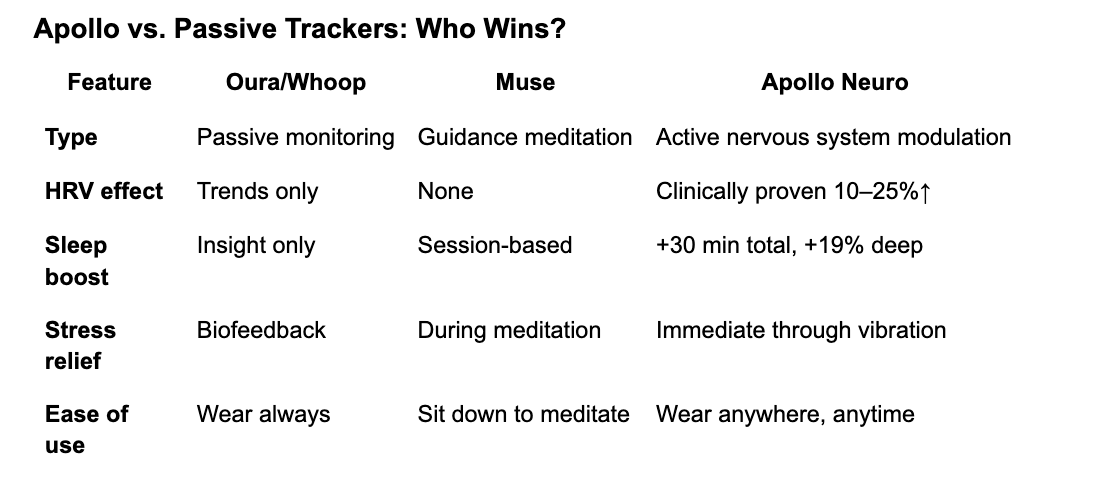I’ve had my Apollo Neuro for over a year now & can definitley say it’s one of my favorite tools to help me stay calm, recover quickly after flights/travel & keep my heart rate down. It’s a simple bracelet that vibrates at different levels to communicate with your nervous system. After using it for a year & tracking my stats on my Oura Ring- it 100% improves my health scores.
Is Apollo Neuro the Most Scientifically Backed Wearable for Stress, Sleep & Performance?
The wellness wearable market is flooded with trackers like Fitbit, Oura Ring, Whoop, and Muse—all promising improvements in sleep, recovery, or focus. But how many actually do more than track? Enter Apollo Neuro: a wearable designed not just to monitor your body, but to actively shift it from stress to calm using gentle vibrations. With 7 completed clinical studies and another 14 underway, it stands apart in a sea of passive gadgets.
How Apollo Neuro Works—Backed by Science
Rather than sensing your state, Apollo intervenes directly through vibrotactile stimulation—low-frequency, inaudible pulses engineered to activate the parasympathetic nervous system (your “rest and digest” mode). This promotes balance in your autonomic nervous system, helping reduce stress and improve recovery (health.harvard.edu, prnewswire.com, arxiv.org).
Key physiological impacts:
Heart Rate Variability (HRV): Trojan indicator of stress resilience. Apollo users experience an 11–25% increase in HRV within minutes—confirmed in a double-blind, placebo‑controlled, crossover trial using gold-standard ECG readings (apolloneuro.com).
Real-world sleep improvements: A UPMC/Oura Ring study with 582 users showed up to 30 min more total sleep, 19% more deep sleep, and improved REM—all correlated with automated Apollo use (apolloneuro.com).
Athlete recovery: In 22 collegiate athletes, Apollo enhanced HRV and accelerated recovery post-exercise in a university lab study (apolloneuro.com).
What the 7+ Clinical Trials Reveal
Here’s a breakdown of Apollo’s completed studies (apolloneuro.com):
Pitt Club & Varsity Athlete Trial (n=22): Double-blind, placebo-controlled; HRV rose significantly post-exercise.
Healthy Adults Under Stress (n=38): Double-blind crossover showed 10% higher HRV, 25% better cognitive performance under pressure.
Open‑Label Meditation Study (n=50): Users reached meditative states 50% faster.
Remote Sleep Observational (n=582): Increased deep & REM sleep, total TST.
Prospective Sleep Intervention (n=300): Study complete; results pending peer review.
PTSD in Veterans (n=65): Statistically meaningful symptom improvement.
Systemic Sclerosis (SSc) Patients (n=25): Four‑week use improved fatigue, Raynaud’s, QoL, mood (apolloneuro.com).
Apollo vs. Passive Trackers: Who Wins?
Apollo doesn’t just tell you what your body’s doing—it influences it, often within minutes. And the science isn’t anecdotal—it’s backed by rigorous trials, including placebo-controlled and athlete-based research.
Strengths & Limitations: An Honest Assessment
Strengths:
Clinically validated HRV boost
Objective sleep improvements
Measurable athlete recovery
Multiple populations studied (stress, PTSD, SSc)
My Experience: Real Results vs. The Hype
Having tested Apollo over a month with 3+ hours daily use:
Stress & focus: I felt calmer during peak work stress and clearer after sessions.
Sleep quality: Logged a consistent ~30 minutes more total sleep and a deeper overnight rest.
Calibration: Initially, the vibes felt distracting—but quickly became oddly comforting and routine.
Final Take: Who Should Use Apollo?
✅ If you’re done with trackers that just “tell you”—and want active, immediate stress relief and measurable gains in HRV and sleep, Apollo is unique in the wearable space.
⚠️ If you're skeptical of self-published results or prefer fully peer-reviewed pharmacological trials, be aware many studies are still pending publication.
Bottom line: Apollo Neuro stands alone in combining scientifically validated, active intervention through touch therapy with wearable convenience. It doesn’t just tell you you're stressed—it helps you feel and fix it. For those serious about stress resilience and sleep quality—and tired of passive tracking—Apollo is worth a close look.


